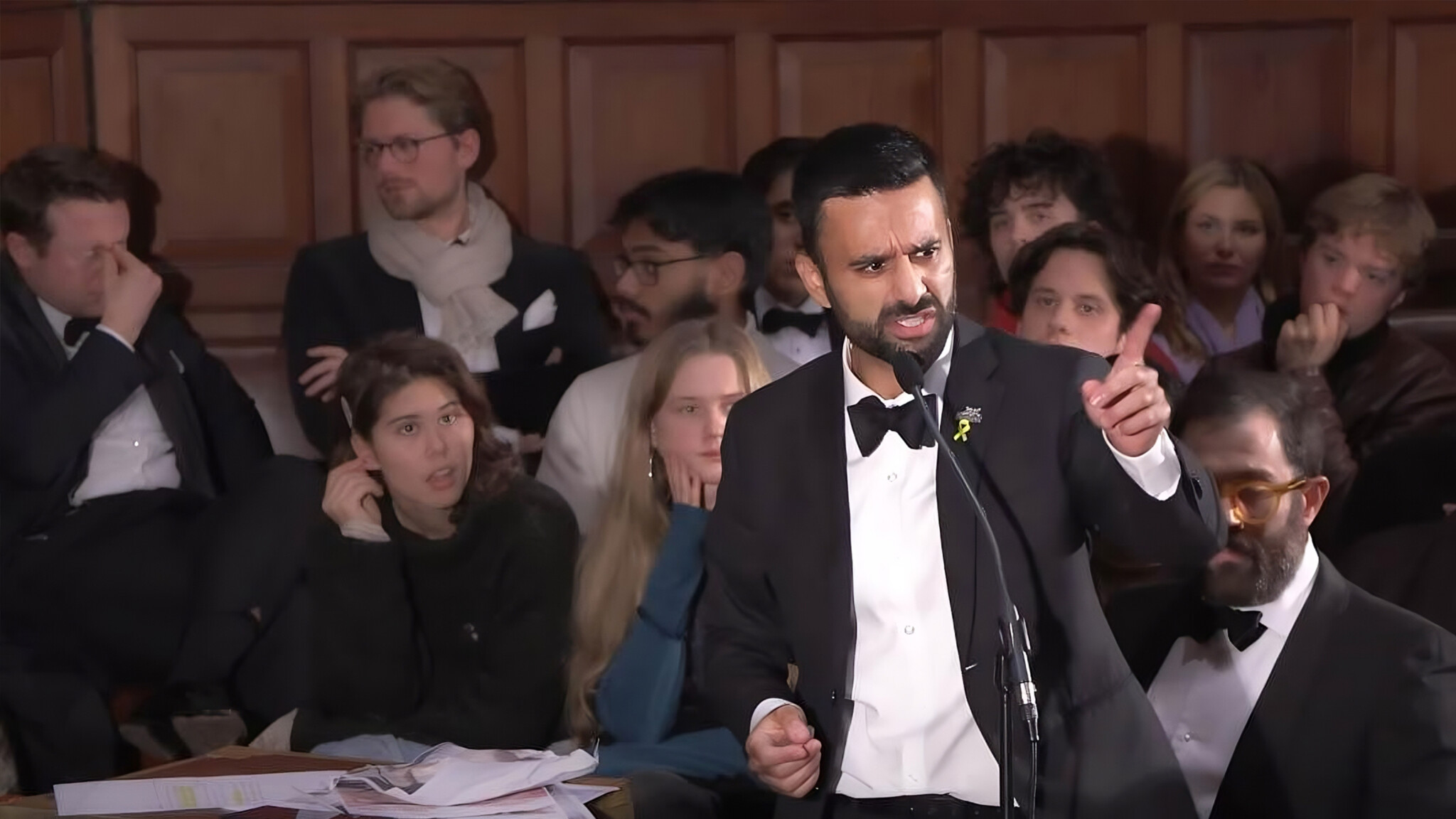I spent two years as President and Chairman of the University of Exeter Debating Society. However, it does not take a trained eye to conclude that the Oxford Union, during its recent “This House Believes Israel is an Apartheid State Responsible for Genocide” debate, has spent its reputation of impartiality — the currency from which it sources its legitimacy, for a night of ill-considered cheap thrills.
Debates are vital democratic exercises. They are where opposing groups battle, not with violence but with reason and wit. The infrastructure must be impartial, else it ceases to be a medium for truth. Debaters will not expose themselves, or their most passionate causes, if there is the possibility of sabotage. This is why if anyone heckled, jeered, or interrupted a speaker, as happened repeatedly in Oxford, I would immediately threaten anyone else who dared do so with expulsion. I never took a public stance on any political matter outside of my support for free speech. This ensured that our institution was not undermined by bias, be that real or imagined. I am no expert on the conflict in Israel, but I understand what is needed for a productive debate.

The Oxford Union’s President, Ebrahim Osman-Mowafy, spectacularly failed in achieving this standard. He made the baffling decision to both speak and moderate. This was justified to members on the basis that he had stepped in after one of the speakers in favor of the Palestinian side had dropped out. Assuming this is acceptable, it is then necessary for him in the nature of debating to declare that what he is about to say may or may not reflect his true beliefs. Having spoken with former Presidents of the Union, no such system is in place.
Mowafy only uploaded photos with the Palestinian speakers, and was silent as insults were hurled at speakers in all but the most egregious circumstances. He chose to undermine the reputation of a centuries-old British institution which graciously selected him as their first Arab president.
Why were the opposition speakers not informed that Mowafy would be speaking until the day of the debate? They were ambushed with this information, and, had they not been, may have likely refused to engage in such a ludicrous process.
The audience’s main condemnation was towards the Israeli journalist Yoseph Haddad, who was thrown out. What is also striking, is that there has been essentially no commentary on why this happened. Speaking with those in the room, there is a tenable casus belli, for Haddad was argumentative during audience speeches.
However, I still place ultimate responsibility on Mowafy for this manifest inability to maintain decorum. He could have appealed to Haddad for civility, perhaps taken him to the “Wellbeing Room” like the student who screamed over Jonathan Sacerdoti: “Liar! F*** you, the genocidal motherf***er”.
Mowafy rebukes criticism of his chairing as “subjective claims”. Invoking “subjectivity” is rich, considering the irregularly with which he would reply to heckles. Objectively, however, Mowafy has written that he was fighting the “zionist American imperial war machine”.
The double standards are nauseating. When one side accuses a people of being genocidal within its very motion, attacks opposing speakers directly, and argues that Israeli identity is entirely fictional, it goes without rebuke from Mowafy. But when Mosab Hassan Yousef called the Palestinians the “most pathetic people on Earth”, it was met with a threat of removal, an order to “not disparage any population”, and more audience outrage towards the “insulting of my identity” than Miko Peled’s reported description of brutal gang rape as “heroism”.
Is Haddad telling hecklers to be quiet or to sit down unjustifiable insolence, or is it a reaction to those who started the hostilities by heckling first? Would Haddad have even needed to do so, if Mowafy had maintained order, properly threatened hecklers, and raised his voice in the same way he forcefully reprimanded Haddad by saying it is “MY job to get the house to order”?
Now, I do think some of the criticism of the Union has been unfair. For example, one of the pro-Israel speakers, Sacerdoti, criticized the debate title as “itself an outrage”. The Union is only representing frequently claimed positions; it is not their editorializing that created the wording, but the political influence and power that those claims have within British society.
Similarly, I commend Mowafy for allowing speakers who were heckled and interrupted to have extended time, even going so far as to directly instruct the officer responsible for timekeeping to do so. However, this too betrays the anti-Israel partisanship by which the Union operated as this was only necessary because the timekeeper was far more diligent in enforcing that pro-Israel speaker Natasha Hausdorff kept to the time limit than her immediately preceding, pro-Palestinian, Susan Abulhawa. As Hausdorff passed the eighteen-minute mark, seven clear and firm bangs of the gavel were issued to hurry the conclusion of her speech. Curiously, Abulhawa’s monologue, when passing the same duration, received knocks so light that I could not tell the exact number.
As Hausdorff passed the eighteen-minute mark, seven clear and firm bangs of the gavel were issued to hurry the conclusion of her speech. Curiously, Abulhawa’s monologue, when passing the same duration, received knocks so light that I could not tell the exact number.
Mowafy is right when he wrote that “this vote will go down in history”, but not as “as one of the pivotal moments in the global tidal wave against zionism” as he suggests. It will be remembered for devastating their reputation for academic professionalism. Notwithstanding the sheer arrogance that believing a room of a few hundred university students being unable to respectfully host a contentious debate is comparable to a great moment of history, it will be used as a warning for how mediocrities bask in prestigious institutions while debasing all that caused them to develop.




Comments (0)
Only supporting or founding members can comment on our articles.